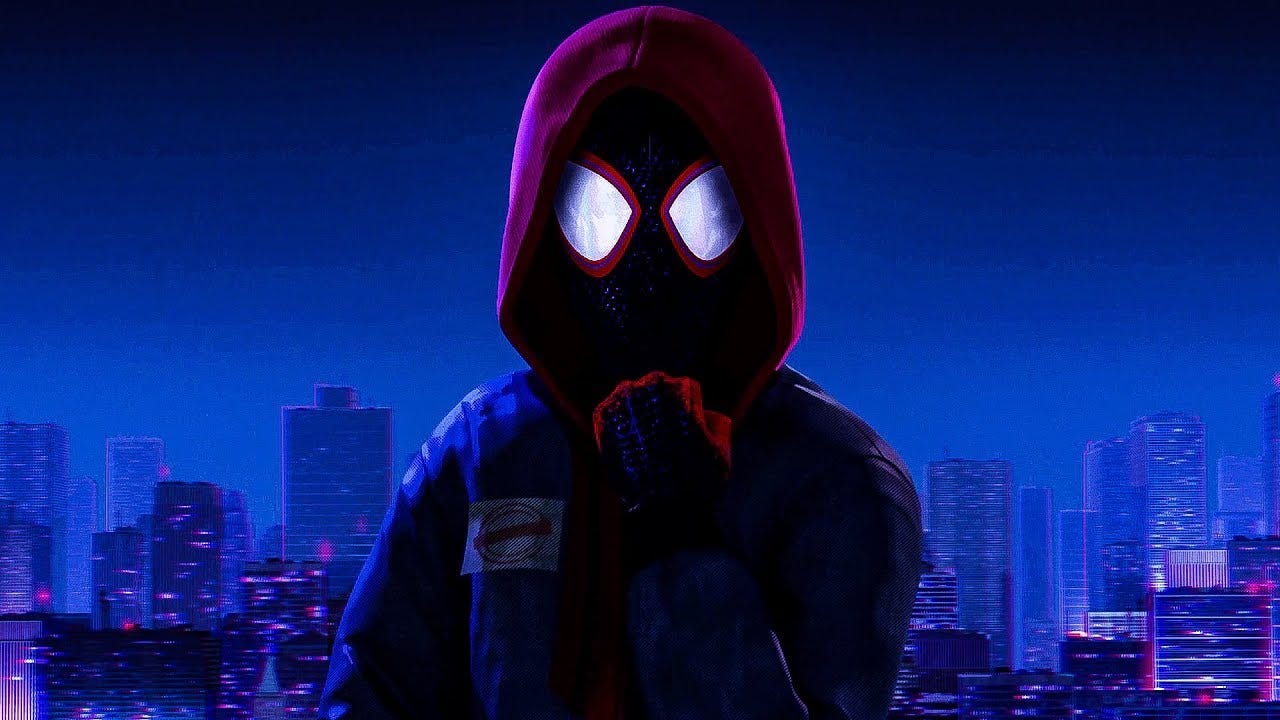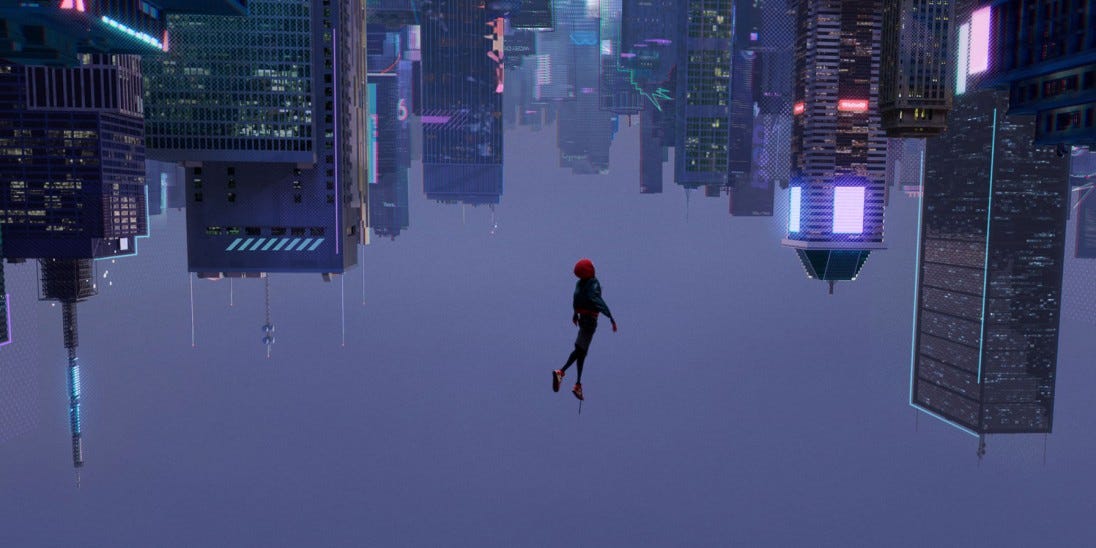How Miles Morales Re-evaluates What Strength Means in 'Spider-Man: Into the Spider-Verse'
All it takes is a leap of faith.
You are now reading an exclusive piece from the Film Daze Digital Magazine, Issue 5: BLM. Enjoy! - The Film Daze Team
When looking up the definition of strength in the Cambridge Dictionary, we are told it means "The ability to do things that need a lot of physical or mental effort.” This meaning happens to perfectly describe the unrealistic, superhero-like qualities expected of Black people by society — and even their family and friends.
The strong qualities assumed of Black men and women were formed as a counteraction to media stereotypes: the strong Black man and woman are supposed to represent Black people as being superhuman and able to take anything that comes their way. Whether that’s shown through actual superheroes like Storm (Halle Berry) and Black Panther (Chadwick Boseman), or normal, everyday, humans like Adonis Creed (Michael B. Jordan ) and Katherine Johnson (Taraji P. Henson), the strong Black character isn't a rare trope. Although it can be empowering because of its message — we can deal with anything thrown at us — it also tells us that we should take anything that is thrown because we are meant to be able to handle it. This kind of expectation has prompted many Black people to hide mental health issues from family and friends and to keep themselves from getting angry, in fear of becoming the angry Black man/woman.
In the 2018 animated film Spider-Man: Into the Spider-Verse (dir. Bob Persichetti, Peter Ramsey, Rodney Rothman), the idea of strength was flipped on its head through the character of Miles Morales (Shameik Moore). Morales is a young Black boy who, after being bitten by a radioactive spider, gains superhuman abilities. But Miles is not the perfect superhero, far from it. One of the best scenes in Into the Spider-Verse is one where Miles fails to jump from a building; he picks a skyscraper, climbs the stairs with adamant intent, only to run back down when he gets to the top because he was too afraid to jump off its roof. Like many of us would, Miles picks a smaller building to try again — an easier route. But after tripping up, he falls from the roof and lands flat on his face, breaking the memory chip the original Spider-Man entrusted to him.
Miles fails multiple times throughout the film, putting his friends in danger, but that doesn’t stop him from becoming who he was meant to be. In the iconic ‘What’s Up Danger’ scene, he once again stands on the rooftop of a tall building — this time overlooking New York City — and takes a leap of faith with the encouraging words of his family and friends echoing in his head, helping him accept who he is: Spider-Man.
Compare this to Beyond the Lights (dir. Gina Prince-Bythewood), where Kaz Nicol (Nate Parker) is constantly under pressure from his father and community to become a politician. This pressure goes as far as Nicol’s father trying to stop him from being in a relationship with a celebrity singer, Nomi Jean (Gugu Mbatha-Raw) because it will jeopardize his political career. However, advisors tell Nicol to take advantage of being associated with Jean because it will actually advance his career and is unlikely to happen again.
The people around Nicol don't consider what he wants to do with his life and when he does finally announce he doesn't want to become a politician, his father is disappointed that his son doesn’t want to follow in his footsteps. This pressure to conform to a career path that was chosen for you or one that will provide rather than bring happiness is something that often weighs on men. Men look up to their fathers — Nicol told his dad he saw him as a superhero — but this relationship is often fraught because of the stress fathers put on their sons to follow in their footsteps and provide for their family.
This is also seen in Love & Basketball (dir. Gina Prince-Bythewood). Camille (Alfre Woodard) and Monica Wright’s (Sanaa Lathan) relationship is strained because they see each other's strengths as flaws. Camille never went to any of Monica’s basketball games and always hated that her daughter was a tomboy. On the other hand, Monica was ashamed of her mother’s prissy attitude and how she never stood up for herself or followed her dreams, sacrificing them to be a housewife.
Black women are often pressured by society to be strong, especially single mothers who are expected to provide for their children. Black women are presumed to be selfless: sacrificing their wants and needs for others. Camille is a perfect example of this, but her daughter sees this attitude to life as something to be ashamed of. It is these pressures and expectations surrounding Black women that make them feel trapped and like they have to conform.
In Into the Spider-Verse, Miles has loving parents that encourage him to follow his dreams and accept who he has become: "I see this spark in you, it’s amazing!" His father openly shows affection, even going as far as to ask him to say "I love you" over the police radio in front of his school. No one in Miles’ family forces him to fit into an image of what they believe success is. This is what we need more of: positive and encouraging representations of Black people not only experiencing failure but rising above it instead of being punished by family and friends. By writing and showing these characters on screen, more Black people can be encouraged to not fear defeat but embrace it.
With on-screen representation being more important than ever in our day and age, Into the Spider-Verse creates a blueprint for what positive depictions of Black characters and their struggles with success and failure can look like. Since the recent Black Lives Matter protests, Black people have been vilified by the media and portrayed as humans whose lives are easily disposable. But with characters like Miles Morales swooping in to save the day, working with men and women of different races to protect the world, and setting a positive example for young Black kids, it gives me hope that this evil perception of Black people will change.









I love Gwen in love